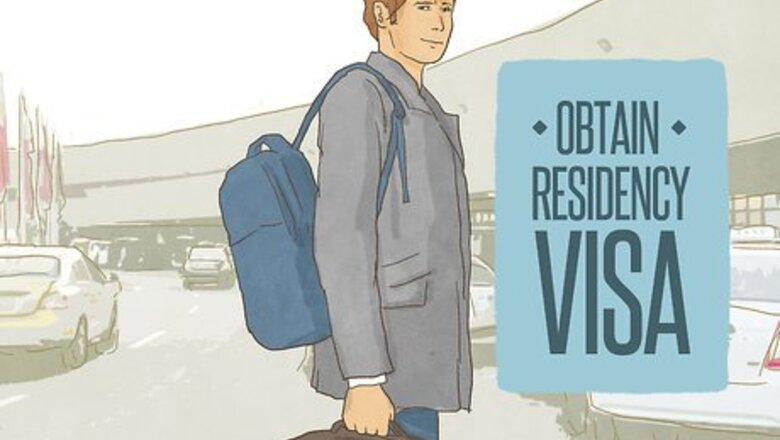
views
X
Research source
This article explores various ways to obtain French citizenship.
Becoming a French Citizen Through Naturalization
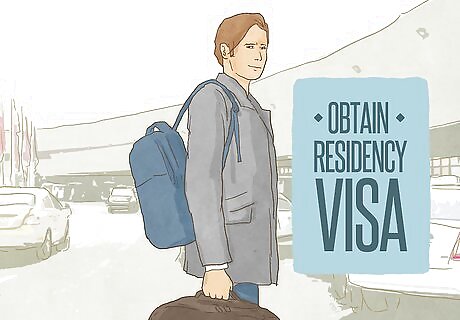
Obtain a residency visa. Before you can apply for citizenship through naturalization, you’ll have to get the appropriate visa or entry permit. The general rule is that you’ll need to apply to the French consulate where you live, to begin the process. The process takes about two weeks for a U.S. citizen, and approximately two months for other nationalities. To apply for a residency visa you’ll need: A valid passport Application form and long-term application annex Eight passport-size photos per individual Financial guarantees, such as a letter from your bank manager stating that you have sufficient income or means to live in France, or proof of a retirement pension Proof of medical insurance that covers you for any necessary treatment you might need in France Proof of lodging in France, such as a lease, title to a property, or a letter from a legal resident stating that he or she will provide for your accommodation.

Live in France for five consecutive years. This is a prerequisite to obtaining French citizenship through naturalization. However, if you’ve successfully completed two years of higher education in France, the five-year residency period can be reduced to two years.
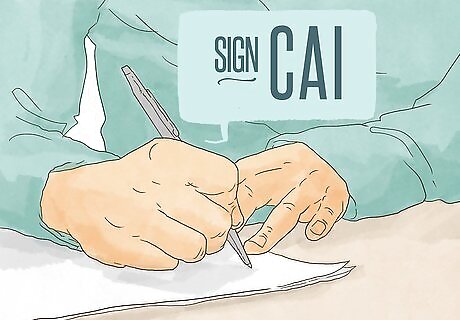
Sign the Reception and Integration Contract (CAI). This is a document used by the French immigration agency (OFII) to make sure that foreign nationals arriving in France “assimilate into French society”. You’ll sign the CAI at your residence, and it’s valid for one year. After that, the French government will evaluate you to make sure you’ve met the CAI requirements, some of which are: Take the oral and written French test. If you don’t meet the expected level of proficiency, you’ll have to take classes (for free) to improve your skills. Complete civics training. The purpose of this is to raise your awareness of such things as the equality between men and women, and basic liberties. You receive the training at no cost to you. Attend an information session. This is geared to presenting you with details about access to public services, such as housing, healthcare and childcare. Attendance is required, and is free.

Submit your application. Assuming you’ve met the naturalization requirements, you’ll have to bring your application and accompanying documentation to the local prefecture where you live. You’ll need: national ID or passport birth certificate proof of address marriage certificate (if applicable) You may also need proof that you're employed, and that you don’t have a criminal record.

Complete any requested interviews and additional paperwork. Your application materials will be assessed by the police, the mayor’s office, and possibly other government departments. They’ll advise you if they want to speak with you and/or if they need any additional information. This whole process can take around two years to complete. Be aware that French immigration policies have become more restrictive since 2006.
Attaining Citizenship Through Birth
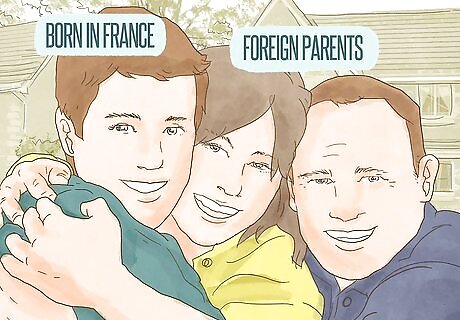
Request citizenship if you were born in France to foreign parents. An individual born in France to parents who weren’t French citizens can claim the right to French citizenship at age 16, and receive full citizenship benefits at age 18. Check with your local prefecture for instructions on how to proceed. You'll have to prove that France was your main residence for at least five years since age 11. Some methods of proof might be: A home ownership deed or apartment/house lease Tax bills and/or utility receipts School transcripts

File a birth record for a child not born in France. A child born to a French parent is also entitled to French citizenship. The parent must file evidence of the birth in the French civil register. If the parent isn't living in France, birth registration forms can be obtained at the local French consulate. Forms may vary depending on whether the parent registers the birth before or after 30 days of the birth date. Either way, the parent will need: The birth certificate from the country in which the child was born, and Proof of the parent's French citizenship, such as a photocopy of the front and back of a valid French National ID card.

Petition for a French nationality certificate. To complete a request for citizenship for a child who wasn’t born in France, but has a French parent, you must obtain a nationality certificate. You can get this from the local court (Tribunal d’Instance) where you reside in France. If you don't reside in France, you can request the certificate through the Nationality Office in Paris.
Acquiring Citizenship by Marriage

Marry a French citizen. If you’re a non-citizen living in France, but you’ve been married to a French citizen for at least four years, you can apply for French citizenship. You’ll apply at your local prefecture, as indicated in Method 1 - Step 4, above.

Live in France for at least one year without interruption before submitting the application. You must also still be married at the time of the application. Additionally, your spouse must have retained his or her French citizenship.

Sign the Reception and Integration Contract (CAI). If you’re the foreign spouse of a French citizen, the French immigration agency will require that you sign the CAI referenced earlier in this article. You must also complete all the CAI requirements, such as the oral and written French test, civics training, and information session.
Obtaining Citizenship By Serving in the French Foreign Legion

Meet the French Foreign Legion's basic requirements. To apply for service in the French Foreign Legion, which is a French military group that accepts recruits from around the world, you will need to meet certain administrative, physical, and medical requirements. Administratively, you must: have a valid passport; know how to read and write in your native language; and be between 17 1/2 and 39 1/2 years old. Physically, your body mass index should be between 18 and 30. Medically, you should have a clean history free from permanent physical ailments (e.g., cancer, poor eyesight, or poor hearing) or surgeries affecting your bodily functions (e.g., damaged meniscus, whole fingers missing, or kneecap dislocations).

Get information and fill out a registration form. If you meet all of the minimum requirements, you can register by going, in person, to one of the many Foreign Legion Information Desks. At the Information Desk, you will receive a registration form and you will open your application. This process takes about two days.

Attend pre-selection examinations. Once you open your application, you will be sent to a pre-selection center in either Paris or Aubagne. At the pre-selection center you will take part in a series of examinations. This process will take about seven days to complete. First, you will take part in a motivation interview, which is meant to test your degree of motivation and your ability to serve. Second, you will take part in preliminary sporting tests meant to assess your physical abilities. Generally, you will be required to complete three push-ups and an endurance test. Third, you will take part in an initial medical examination, which will ensure you meet the minimum medical requirements necessary to serve. Fourth, you will complete your registration form.
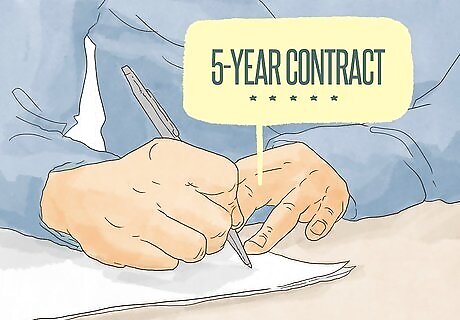
Sign a five-year enlistment contract. Once you complete the pre-selection examinations, you will be required to sign a five-year service contract.

Pass selection tests. After you sign your five-year contract, you will be sent to the Selection and Incorporation Center of Aubagne, which is where you will take part in the next phase of testing. There, you will take part in psychological and technical tests; logic tests; security interviews; and personality tests. This process will take about 14 days. If you pass all of these selection tests, which is determined by a selection committee, your five year commitment will officially be accepted. If you do not pass these selection tests, you will be sent home.

Complete training. If you are accepted, you will complete a four-month training. This training will cover: Introductions to military life; Marching; Technical and hands-on training; Mountain training; Exams; and Driving techniques.

Serve the French Foreign Legion for three years. After training, you will continue to serve your five year commitment by serving in one of the 11 regiments of the Foreign Legion. Three years into your five year commitment, you will have the ability to apply for French citizenship, but citizenship is not guaranteed.


















Comments
0 comment